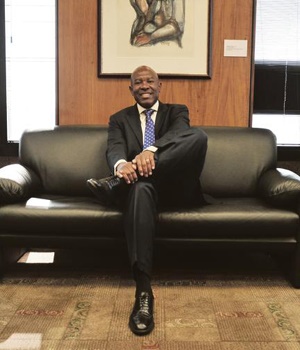
Johannesburg - The SA Reserve Bank’s mandate is to achieve and maintain price stability. This is because price stability is a necessary condition for the balanced and sustainable economic growth that South Africa requires, according to Sizwe Nxedlana, chief economist at FNB.
To achieve price stability, the Reserve Bank has an inflation target of between 3% and 6%. The adjustment of interest rates is the main policy tool used by the bank to ensure that inflation stays within the stated target.
Inflation is a sustained increase in the general price level in an economy over time.
There are two major causes of inflation – demand-pull inflation and cost-push inflation.
Demand-pull inflation occurs when there is too much money chasing too few goods. In other words, when demand for goods and services is greater than the supply, leading to an increase in prices.
Cost-push inflation refers to an increase in the general price level that is triggered by a large increase in an important input cost such as oil. A large increase in the oil price raises the costs of production, to which producers can respond by passing these higher costs on to consumers, thereby causing inflation.
Last year, South Africa’s consumer price inflation grew by 6.1%.
Inflation slowed in the second half of last year and slowed even further this year, averaging only 4.1% during the first quarter of this year. This was because of the significant decline in the oil price, which led to a decline in the domestic petrol price. The price of petrol in Gauteng peaked at R14.39 in April last year but dropped to R10.31 in February.
However, the petrol price has increased by R3.46 since February because of a combination of a higher oil price, a weaker rand and higher fuel levies introduced in the February budget speech.
Due to a combination of the higher petrol price, high increases in administered prices and higher-than-expected financial services inflation, overall consumer inflation has been accelerating in recent months. After bottoming out at 3.9% in February, consumer inflation increased to 4.6% in May.
We expect the recent acceleration in inflation to continue in the next few months, and for inflation to peak at close to 7% during the first quarter of next year. The main sources of the expected acceleration in inflation are cost push in nature.
They are rand weakness, a higher oil price relative to what transpired early this year and further increases in electricity prices. In contrast, the South African economy has delivered very weak growth over the past two years and we expect this to continue over the next two years.
Last year, the South African economy grew by only 1.5%, with consumer spending only growing by 1.4%. For context, consumer spending growth in South Africa has only been weaker than last year’s in 1977, following the Soweto uprising; in 1985, following the debt standstill; in 1992 and 1993, when we had our last double-dip recession; and in 2009 during the credit crisis and the global recession.
With government making a concerted effort to rein in its budget deficit, with growth in credit extension to households weak, and with a combination of load shedding and lower domestic output, we expect the South African economy to continue to deliver weak growth. As a result, there will be limited demand-led drivers of inflation.
Despite this, we expect the Reserve Bank to raise interest rates by at least 50 basis points (0.5 percentage points) over the next 12 months. The Reserve Bank will be raising rates from 40-year lows. The repo rate is currently 5.75% and the prime lending rate 9.25%.
Firstly, as explained, inflation is likely to increase to uncomfortably high levels over the next few months.
Secondly, we are a small, open economy with a large current account deficit. This means our national spending is significantly greater than national income, which means that we need to borrow the difference. With the US Federal Reserve about to begin raising interest rates in that country for the first time since 2008, funding for those who need it will become harder to get.
This could also lead to further rand weakness and place further upward pressure on the inflation outlook.
Finally, the Reserve Bank is also worried about what a long period of high inflation will do to inflation expectations, and therefore on pricing behaviour by both labour and firms.




 Publications
Publications
 Partners
Partners








